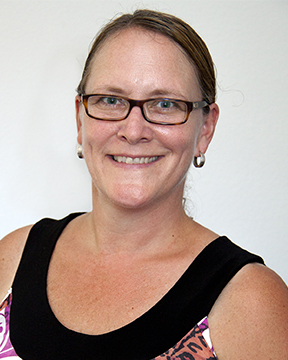Geography & Environmental Science
Fundamentals of GIS Graduate Certificate
Fundamentals of GIS Graduate Certificate
The Fundamentals of GIS Certificate prepares UWL graduate students with the technological and theoretical skills need to apply geospatial tools in their research and careers. Geospatial tools have become increasingly complex, prompting a large demand by employers for individuals with formal training. The field of Geographic Information Science (GIS) is highly interdisciplinary and has a wide range of applications within academia and industry. Outside the traditional fields of geography and environmental sciences, GIS is utilized in biology, archeology, crime analysis, data sciences, epidemiology and public health, emergency planning and disaster management, recreation management, water and wastewater management, telecommunication, engineering and business services, aerospace and defense, transportation and logistics, and oil and gas exploration.
By completing this certificate, students will gain experience with common commercial and open-source geospatial software. The certificate’s core and elective courses cover: (i) conceptual foundations, (ii) geospatial data collection, processing, and management, (iii) cartography and visualization, (iv) data modeling, and (v) analytical methods.
Program Requirements
The Fundamentals of GIS Graduate Certificate is open only to students enrolled in another graduate degree-seeking program at UWL.
A foundation in GIS through prior coursework or professional work experience, approved by the program advisor (Dr. Gargi Chaudhuri), is required for admission to the Fundamentals of GIS Graduate Certificate. Students without prior GIS experience can meet this requirement by completing GEO 590 Independent Study. This course will provide the foundational GIS knowledge taught in GEO 305 Geographic Information Systems and Science I and additional GIS graduate level applications and learning objectives. Credits earned in GEO 590 do not count towards the Fundamentals of GIS Program.
Students need to complete 9 credits, including 3 credits of a core course (GISS II – GEO 505) and 6 credits of elective courses, and submit a GIS portfolio to the program advisor upon completion of the program.
View more details about the program using the following links.
Graduate Faculty
The following faculty in the Department of Geography and Environmental Science teach graduate-level courses in GIS and physical geography. They also frequently serve on graduate committees for Biology and Computer Science students.
Specialty areas:
Geomorphology, River Systems, Water Resources, Environmental Contamination, Geospatial Field Mapping and GIS
Specialty areas:
Paleoclimatology, biogeography, freshwater environments
Specialty areas:
GIS, Remote Sensing, Urban Analytics, and Machine Learning.
Specialty areas:
rural Latin America; indigenous cultures, territorialities, and property rights; forest-agriculture dynamics; participatory research mapping; protected areas
Specialty areas:
Water Resources, Natural Hazards, Sustainable Development, Environmental Conservation, Community Livelihood, Conservation photography









